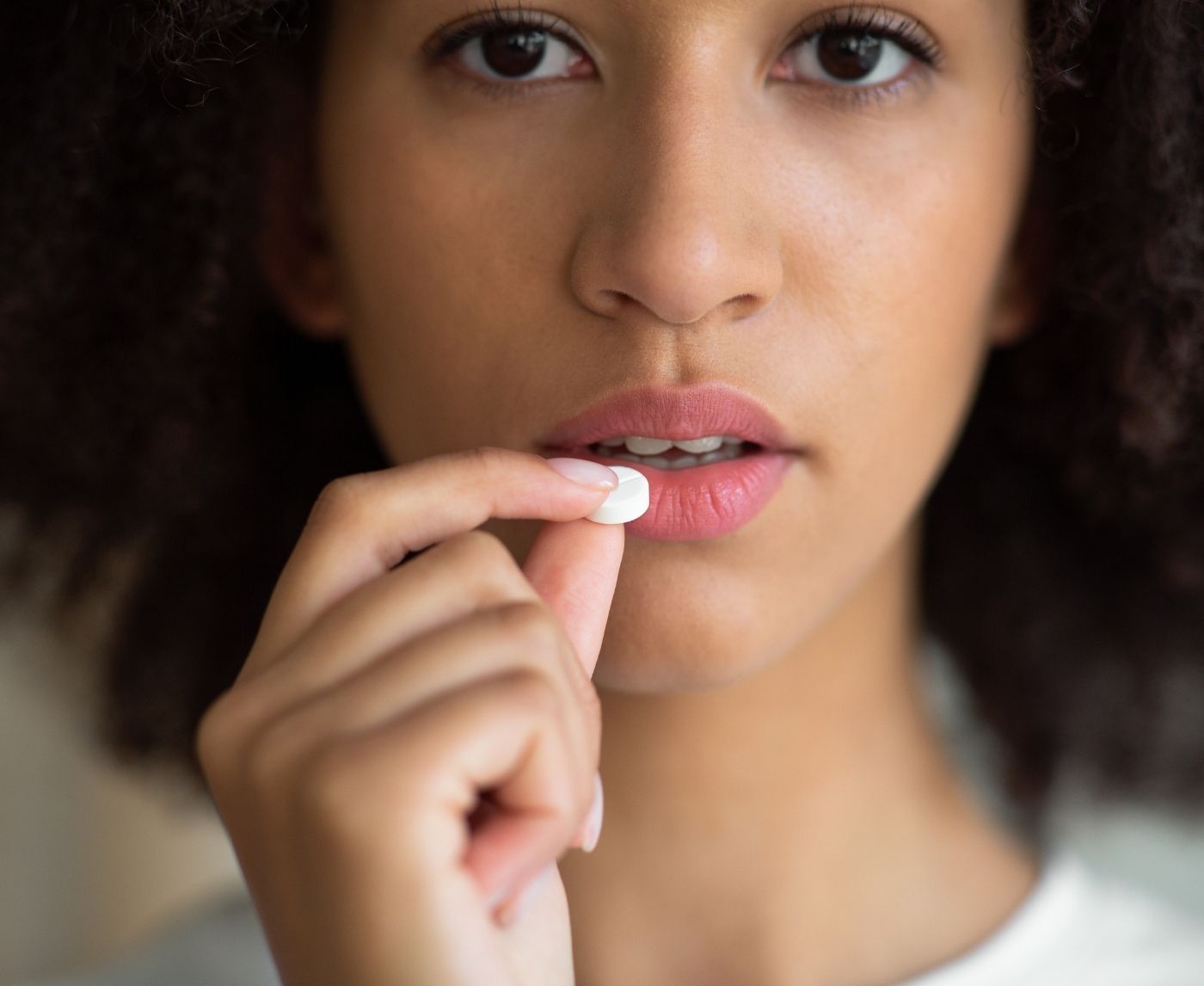Why Acting Fast After HIV Exposure Could Change Everything
Chlamydia & Gonorrhea
These bacterial infections are treated with antibiotics like azithromycin and doxycycline. If a person takes antibiotics before testing, the bacteria may be partially or completely cleared, leading to a false negative result. This is why doctors recommend waiting until at least two to three weeks after antibiotic treatment before retesting to confirm clearance.
Syphilis
Syphilis testing is usually done through antibody tests that detect an immune response rather than the actual bacteria. Some antibiotics (like fluoroquinolones and rifampin) can interfere with the way syphilis is detected, potentially causing false positives. On the other hand, people with weakened immune systems due to immunosuppressant drugs may not produce enough antibodies to register a positive result, creating a false negative.
HIV
HIV tests primarily work by detecting antibodies against the virus. However, people taking antiretroviral medications (such as PrEP or HIV treatment drugs) before exposure or very early in infection may suppress the virus so effectively that the body does not produce enough detectable antibodies yet. This could lead to a false negative result in early HIV testing. Additionally, biotin supplements (found in multivitamins and hair/nail supplements) can sometimes cause false positives in HIV immunoassays.
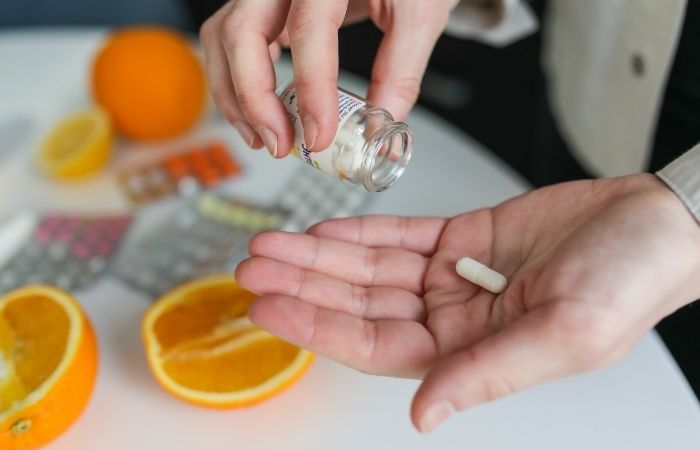
People are also looking for: Does PEP cure HIV if I already got it?
Herpes (HSV-1, HSV-2)
Herpes testing is most reliable when the virus is actively shedding. If a person takes antiviral drugs like valacyclovir or acyclovir, it can reduce viral shedding, which may cause a false negative in swab or PCR-based tests. However, herpes antibody tests are not usually affected by medication, since they measure long-term immune response rather than active viral presence.
Hepatitis B & C
Hepatitis B and C tests measure viral load or antibodies. If someone is on antiviral treatment for hepatitis, their viral load may drop to undetectable levels, leading to a false negative on viral RNA or antigen tests. In these cases, antibody testing may still confirm past exposure, but a viral load test could give misleading results.
False Positives vs. False Negatives: Why They Matter
When medications interfere with at-home STD tests, they can lead to false positives or false negatives, each carrying different risks and consequences.
What is a False Positive?
A false positive occurs when a test incorrectly detects an infection that isn’t actually present. This can be caused by:
- Cross-reactivity: Some medications, like antibiotics (rifampin), biotin supplements, and antipsychotic drugs, can interfere with antibody-based STD tests.
- Residual antibodies: If a person was previously infected and treated, an STD test might still detect old antibodies, leading to a misleading positive result.
Check Your STD Status in Minutes
Test at Home with RemediumHepatitis B & Hepatitis C Test Kit
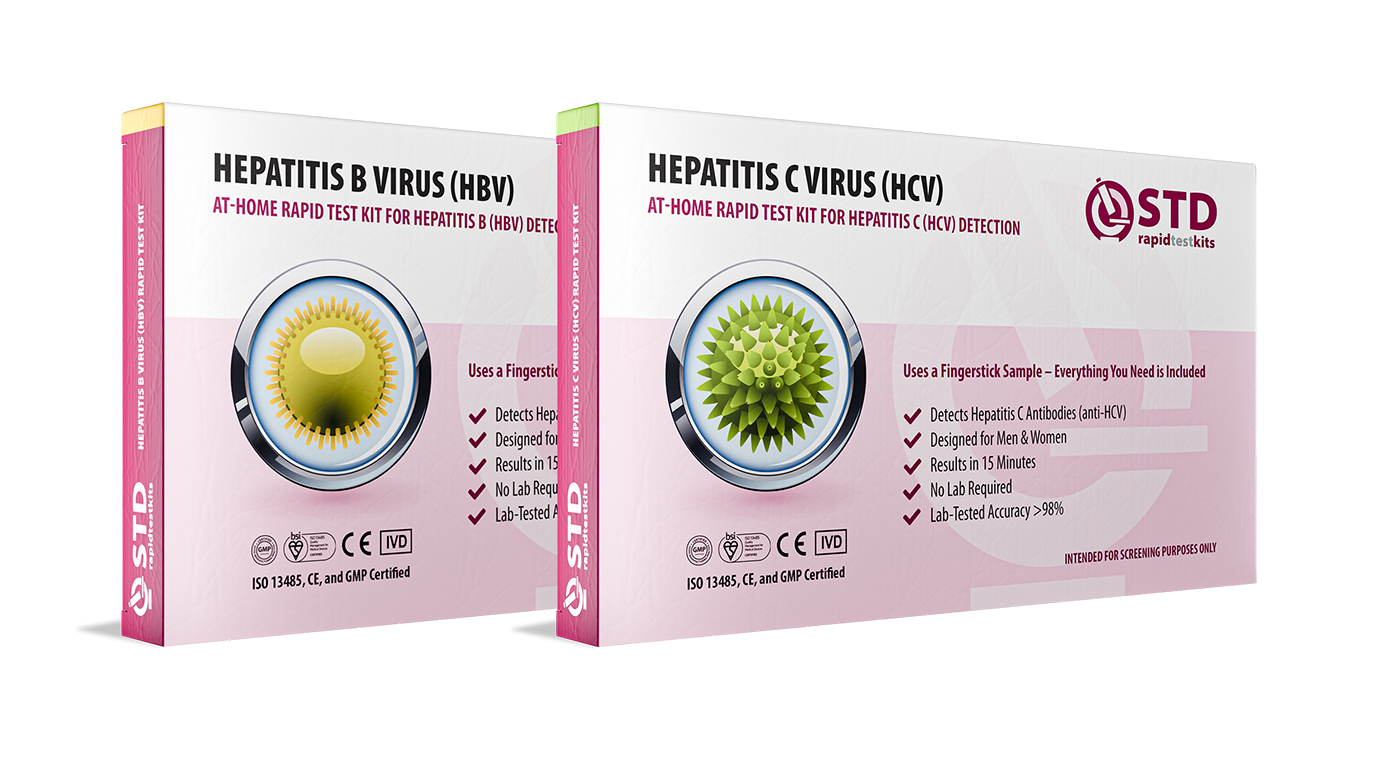
 For Men & Women
For Men & Women Results in Minutes
Results in Minutes No Lab Needed
No Lab Needed Private & Discreet
Private & DiscreetOrder Now $49.00 $98.00
For all 2 tests
Why False Positives Are a Problem
Unnecessary anxiety: A false positive can cause extreme stress, leading people to believe they have an STD when they don’t.
Unneeded treatment: A person may take antibiotics or antivirals they don’t need, potentially leading to resistance issues.
Strained relationships: False positives can cause unnecessary emotional distress and trust issues in relationships.
What is a False Negative?
A false negative happens when a person has an STD but the test fails to detect it. This is often due to:
- Antibiotics clearing the infection too early (e.g., chlamydia or gonorrhea).
- Antivirals suppressing viral load (e.g., HIV, herpes, hepatitis).
- Weak immune response from immunosuppressant medications, delaying antibody production.
Why False Negatives Are Dangerous
- Delayed treatment: If someone believes they are STD-free when they are not, they may spread the infection unknowingly.
- Complications from untreated infections: Some STDs, like syphilis and HIV, can cause severe health consequences if left untreated.
- False sense of security: A person may engage in risky behaviors thinking they are safe when they actually need treatment.
How to Reduce the Risk of False Results
To avoid misinterpretation, follow these steps:
- Disclose all medications to a doctor before testing.
- If taking antibiotics, wait at least two weeks after completing treatment before testing for bacterial STDs.
- If taking antivirals, ask about alternative testing options (e.g., viral load testing for HIV or hepatitis instead of antibody-based tests).
- If using biotin supplements, stop taking them 48 hours before testing.
- Retest if results seem inconsistent with symptoms or risk factors.

People are also looking for: Is azithromycin still used for chlamydia?
Expert Opinions on Medication Interference in STD Testing
To gain deeper insight into how medications can interfere with at-home STD tests, let's examine what medical professionals and researchers have to say on the subject.
Dr. Angela Martinez, Infectious Disease Specialist
"Antibiotics are one of the most common reasons for false negatives in bacterial STD testing. Many patients who have been exposed to chlamydia or gonorrhea take antibiotics for unrelated infections, such as a sinus infection, not realizing that the medication could wipe out the bacteria before testing. This leads to a negative result, even though the person was initially infected."
She advises patients who suspect exposure to wait at least two weeks after completing antibiotics before taking an STD test.
Dr. Evan Parker, Microbiologist & Lab Technician
"We've seen how biotin, found in many popular hair and nail supplements, interferes with immunoassays for syphilis and HIV. High doses can lead to false positives because they disrupt the way laboratory machines read enzyme-based test reactions. If someone is regularly taking high doses of biotin, they should pause it 48 hours before testing."
CDC Guidelines on Antiviral Use and HIV Testing
The Center for Disease Control and Prevention (CDC) has issued warnings regarding the use of antiretroviral medications (PrEP, PEP) before HIV testing. According to their findings:
- PrEP (Pre-Exposure Prophylaxis): Taking PrEP consistently before HIV exposure may suppress viral replication so effectively that HIV antibody tests may fail to detect an early infection, leading to a false negative.
- PEP (Post-Exposure Prophylaxis): If a person has been exposed to HIV and starts PEP immediately, the virus might not establish itself fully in the bloodstream, making traditional HIV tests unable to detect an early infection.
The CDC recommends using HIV RNA tests instead of antibody-based tests if the person is on PrEP or PEP to ensure accurate results.
Dr. Stephanie Wu, Gynecologist & Sexual Health Specialist
"Hormonal birth control itself doesn’t cause false positives, but it can alter vaginal flora, leading to misinterpretation of bacterial infections like chlamydia. This is why some at-home STD test results may differ from in-clinic tests."
The National Institute for Allergy and Infectious Diseases (NIAID) on Syphilis Testing Research from NIAID indicates that certain antibiotics, including doxycycline and azithromycin, can suppress syphilis bacteria but may not always eliminate the infection completely.
This means that if someone takes antibiotics without a proper full-dose treatment plan, they may still have syphilis even if their test result comes back negative.
Check Your STD Status in Minutes
Test at Home with Remedium10-in-1 STD Test Kit
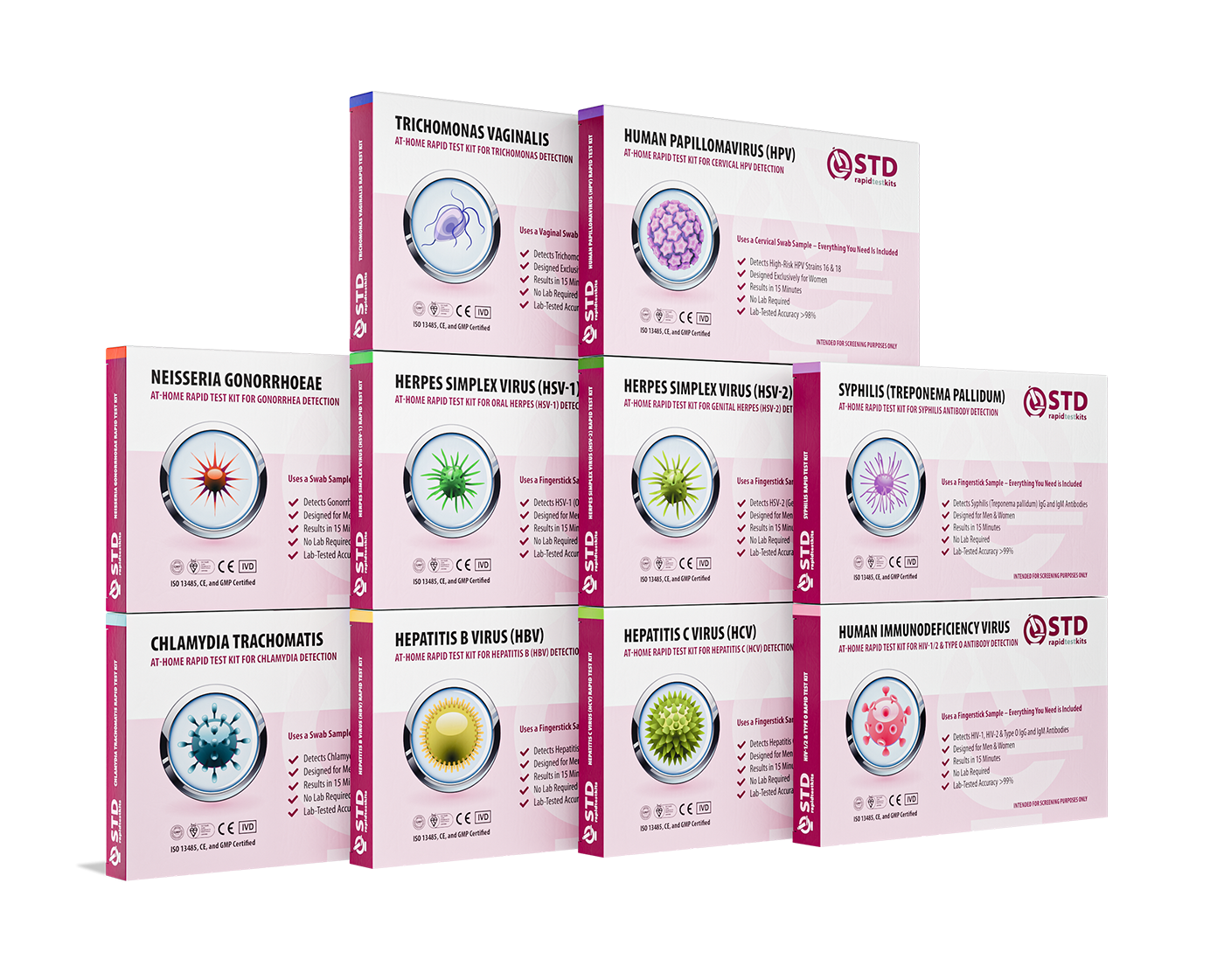
 For Women
For Women Results in Minutes
Results in Minutes No Lab Needed
No Lab Needed Private & Discreet
Private & DiscreetOrder Now $189.00 $490.00
For all 10 tests
How to Ensure Accurate At-Home STD Test Results
If you're taking medications and planning to use an at-home STD test, follow these best practices to reduce the risk of inaccurate results:
Check if Your Medications Might Interfere with Testing
Before testing, research whether any of your medications, including antibiotics, antivirals, birth control, biotin supplements, or immunosuppressants, could impact your results. If unsure, consult a healthcare provider.
Time Your Test Properly
- If you’ve recently taken antibiotics, wait at least two to three weeks after completing treatment before testing for bacterial STDs like chlamydia, gonorrhea, or syphilis.
- If you’re on antiviral medication for HIV, herpes, or hepatitis, ask your doctor if RNA-based tests are a better option for detecting infections.
- If you take biotin supplements, stop 48 hours before testing to avoid false positives in syphilis or HIV tests.
Choose the Right Type of Test
Some STD tests look for antibodies, while others detect the actual virus or bacteria.
If you are on PrEP, PEP, or immunosuppressants, standard antibody-based HIV tests may not be reliable. Instead, opt for a PCR or RNA-based test that looks for viral genetic material.
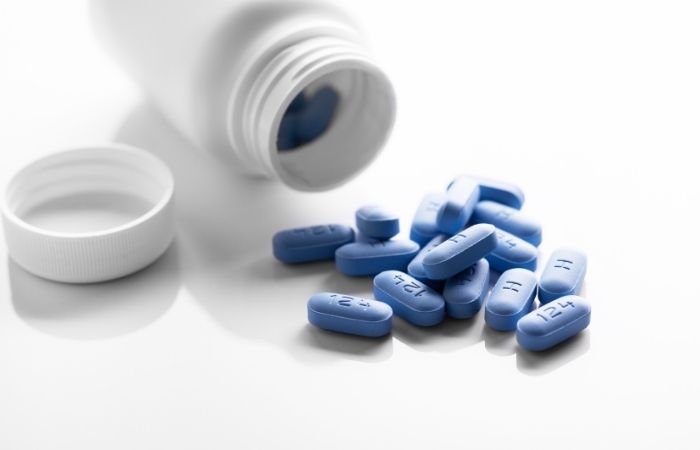
People are also looking for: Is PEP the same as the morning-after pill?
Consider Retesting If Results Seem Inconsistent
If your test result doesn’t match your symptoms, or if you receive a negative result despite recent exposure, retest in a few weeks. For STDs with long incubation periods (like syphilis and HIV), consider repeat testing after 4-6 weeks if you were recently exposed.
Use a Reliable At-Home STD Test Kit
Not all at-home STD test kits are created equal. Choose a test from a trusted provider that offers lab-based confirmatory testing if initial results are uncertain.
FAQs
1. Can taking antibiotics before testing give me a false negative?
Yes. If you take antibiotics before testing for chlamydia, gonorrhea, or syphilis, the bacteria may be partially or completely eliminated, leading to a false negative. Wait at least two to three weeks after finishing antibiotics before testing.
2. I’m on PrEP. Can I trust my HIV test result?
If you’re taking PrEP (Pre-Exposure Prophylaxis), a standard HIV antibody test may not be reliable because PrEP suppresses viral replication. You should opt for an HIV RNA or antigen-based test instead.
3. Does birth control affect STD test results?
Birth control doesn’t directly alter STD test results, but hormonal changes may affect vaginal bacteria, which could cause misleading results for conditions like bacterial vaginosis or chlamydia.
4. Can taking biotin supplements lead to a false positive?
Yes. High doses of biotin (Vitamin B7) can interfere with lab-based HIV and syphilis tests, causing false positives. If you take biotin supplements, stop 48 hours before testing.
5. Do antiviral drugs affect herpes test results?
Yes. If you take acyclovir or valacyclovir, they can reduce viral shedding, leading to a false negative on a herpes swab or PCR test. If testing for herpes, try to test during an active outbreak for the most accurate result.
6. How can immunosuppressants impact STD testing?
Immunosuppressants like steroids, methotrexate, or biologic drugs can weaken your immune system, delaying antibody production. This may cause false negatives on tests that rely on antibodies, like HIV and syphilis tests.
7. How soon after finishing antibiotics can I retest for an STD?
For chlamydia, gonorrhea, or syphilis, wait at least two to three weeks before retesting. If testing for syphilis via an antibody test, a follow-up test after 4-6 weeks is recommended.
8. What should I do if my STD test result doesn’t match my symptoms?
If you receive a negative result but still have symptoms, consider:
- Retesting in a few weeks.
- Taking a different type of test (e.g., RNA-based instead of antibody-based).
- Consulting a doctor for additional testing and evaluation.
9. Can over-the-counter medications interfere with STD tests?
Most OTC medications won’t affect STD tests, but some cough syrups, cold medicines, and antihistamines contain compounds that may interfere with lab-based immunoassays. If in doubt, wait 24-48 hours after taking these medications before testing.
10. What’s the most reliable way to test for an STD while on medication?
If you’re taking medications that could impact STD testing, the best approach is to:
- Inform your doctor or test provider about any medications.
- Wait the appropriate amount of time after antibiotics before testing.
- Choose the correct type of test (e.g., RNA-based for HIV, PCR for herpes).
- Retest if results seem inconsistent with symptoms or recent exposure.
Ensure Reliable At-Home STD Testing
At-home STD tests provide a convenient and private way to check your health, but medications can sometimes affect accuracy. To ensure the most reliable results:
- Check if your medications might interfere with testing
- Time your test properly; especially after taking antibiotics or antivirals
- Choose the right type of test for your situation
- Retest if your results don’t match your symptoms or risk factors
- Use a trusted, lab-verified at-home STD test kit
Worried about your results? Consider using a high-quality at-home STD test kit that offers professional lab confirmation. If you suspect your medications might have affected your test, consult a healthcare provider for guidance.
Sources
1. Do Drugs Affect STD Tests? (STDCheck blog)
2. NIH HIVinfo – What is a Drug Interaction?
3. AIDSmap – HIV Treatment and Drug–Drug Interactions
4. CDC – Preventing STIs with Doxycycline PEP
5. Verywell Health – Medications That Can Decrease Contraceptive Effectiveness






